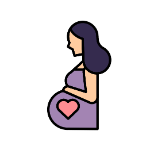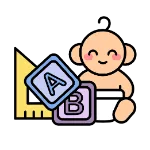
Everything Pregnant Mommies Need To Know About A Pregnancy Due Date Calculator
Ever heard of a pregnancy planning tool or due date calculator? Of course, as a pregnant woman, you would have come across the terms multiple times. Now, a due date calculator helps you estimate when you could expect your baby’s arrival without a mental calculation. However, do bear in mind that your due date is only an approximation and very few babies surprise you by arriving early or later than the expected due date.
(Image credit to MomJunction)
HappyPreggie has a pregnancy due date calculator too, and we call it a planning tool. By keying in either the first day of your last period, conception date, or estimated due date (EDD), you’ll be given the expected arrival date of your munchkin. Ladies, our planner also gives you an array of pregnancy activities, reminders, and checklists that would save you the effort.
Here’s everything pregnant mommies need to know about a pregnancy due date calculator!
What is a Due Date?
Due date is a 38-week of gestation process in which a baby fully develops from a fetus into a full-grown tiny being. 38 weeks is equivalent to 266 days, though healthcare providers would alert you that your pregnancy can be full-term anywhere between 37 and 42 weeks. Their grand entry into the world can be manipulative for various factors play a role in it.
(Image credit to Belly Belly)
Now that we have known what is a due date is, let’s learn how to calculate it!
How do I calculate my due date?
Since you may not know when exactly you would have ovulated, or conceived, a pregnancy calculator will allow you to calculate based on three particular dates; the first day of your last menstrual period (LMP), conception date, and estimated due date (EDD).
#1 First day of last menstrual period (LMP)
As aforementioned, most pregnancies last around 40 weeks, hence the best way to estimate your expecting date is by counting 40 weeks (280 days) from the first day of your LMP. Our online planning tool uses this simple method to calculate the estimated arrival of your baby;
(Image credit to EWomen)
- Count 40 weeks or add 280 days after the first day your LMP
- Subtract 3 months from the first day of your LMP and add seven days
- This method of due date calculation is known as Naegele's rule
- Remember it’s only an estimated date and only 4% of babies born exactly on the date counted
#2 Conception date
Counting based on this date is done by knowing the date you conceived or got pregnant. If you have knowledge about the exact date you got pregnant, then you shall count 38 weeks ahead of it and the end date might be your little bub’s entry into the world. Here’s an important detail, if you have irregular periods, then this may be a more accurate calculation compared to the LMP method.
(Image credit to Shutterstock)
- Date of conception is the date your egg and the sperm met
- Women who track their ovulation might know their exact conception date
- Ovulation can be tracked via; recording basal body temperature, tracking ovulation symptoms and using an ovulation predictor kit.
- Even when you are aware of your ovulation period, it’s difficult to say when exactly you got bumping
#3 Estimated due date (EDD)
EDD is simply known as the “best guess” as to when your tiny tot might be born via the pregnancy calculator we have. The due date is calculated by adding 9 months and 7 days to the LMP too and many gynecologists use a pregnancy wheel that has the use of this method.
(Image credit to American Pregnancy)
- The estimation is made by adding 280 days to the LMP
- In cases of IVF, where dates are known precisely, the EDD is calculated by adding 266 days to the date of conception
- Only 4% has seen successful EDD birth whereas, 80% of babies either born 2 weeks before or after your EDD
How do I calculate my due date if I had an IVF?
Dear pregnant momma, if you had conceived through an in vitro fertilization (IVF), you can calculate your due date using the IVF transfer date. However, in many cases, your provider may just count and share the due date information with you. Here’s how to calculate on your own though:
(Image credit to Shutterstock)
- The majority of embryo transfers occur either three or five days after egg retrieval and fertilization
- Count 263 days forward from your transfer date, if you have a three-day transfer
- Count 261 days forward from your transfer date, if you have a five-day transfer
What if I have an irregular period?
Trust us, many women go through the irregular period dilemma and that becomes a complication for moms in maternity to get an approximate pregnancy due date. Somehow, your menstrual cycle might not be 28 days and here you are, wondering if the pregnancy planning tool would work for you. The answer to your doubt is, yes! The logic underlying our due date calculator is as follows:
(Image credit to Practo)
- An average menstrual cycle period is 28 days
- The shorter the cycle, the earlier your due date; for every day your cycle is shorter, your maternity due date moves one day backward (earlier)
- The longer the cycle, the later your due date; for every day your cycle is longer, your maternity due date moves one day front (later)
Why is it important to calculate my due date?
There must be several reasons why pregnancy providers and healthcare experts provide you with due date calculations. These reasons are obviously benefiting the mothers, daddies, and families too. Let’s know why:
(Image credit to Practical Parenting)
- Knowing expected delivery dates helps you to prepare the welcoming of your munchkin
- Gives your ample time to pack the hospital bag, prepare a birth plan and make a list of the pregnancy budget
- Help your other children to get ready for the arrival of an additional family member
- Allows mother to get the appropriate prenatal care
- Gears up daddies into the father mode
Can I plan or change my due date?
Be it a busy mom who wants to avoid being heavily pregnant at the peak of your career or you simply want to have a special date on which your baby will be born, you can try to time the date of your conception. By planning on when to have intercourse, you are actually “planning” for your due date. Despite being lucky on getting pregnant on your planned date, your due date might not go as you mapped out.
(Image credit to NetDoctor)
On the other hand, if you are wondering whether you can change your date, possibilities are there. Of course, you can’t manually change your date! But, your doctor can change the due date for several reasons as you gradually grow a bigger bump. It could be due to the fact;
- you may have irregular periods
- something amiss in your dating ultrasound scan
- influence of your baby’s height which may indicate you aren’t far along
- levels of alpha-fetoprotein made by the baby are beyond the usual range
These are the everything pregnant mommies need to know about a pregnancy due date calculator. Remember, a due date calculator gives you an estimated date of when your baby might come into this world. However, if your baby is too excited to meet his or her parents or is too comfy being inside you, then you can have a manipulative due date. Expect the unexpected on your expecting date.
(Image credit to Shutterstock)
Hope our article on everything pregnant mommies need to know about a pregnancy due date calculator serves the best for you. Head here to know your little one’s estimated arrival date and let us know too. For more informative articles like this, visit HappyPreggie.
















